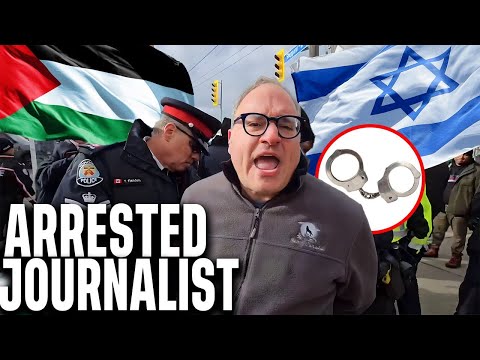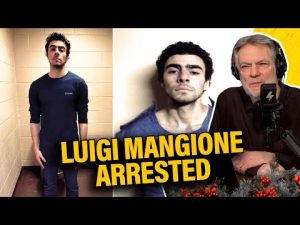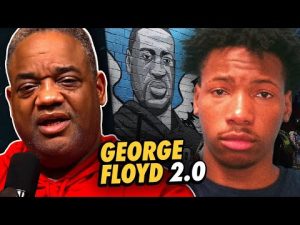**Canada’s Concern: A Cautionary Tale for the U.S.**
In a chilling recent incident that has raised eyebrows across North America, Canadian journalist Ezra Levant found himself on the wrong side of the law while simply doing his job. Levant, who runs Rebel News, ventured into a North Toronto neighborhood where a pro-Hamas protest was taking place. What he witnessed was not just unsettling but a troubling glimpse into the current state of freedom and civil rights in Canada. This scenario serves as an urgent reminder for Americans to cherish and protect their constitutional freedoms, especially in a world where such rights can quickly slip away.
Levant, a resident of the area, was appalled to discover a protest taking place in a mostly Jewish neighborhood. The demonstration in question recreated the final moments of a Hamas leader, showcasing a disconcerting display that one might liken to a reenactment of unspeakable atrocities from history. Moved by a sense of duty to report on what was happening, Levant went to observe and document the event. However, his actions were met with swift police intervention. To his bewilderment, officers asserted that his presence was “causing a disturbance,” an allegation that led to his arrest for merely standing on a public sidewalk.
This incident isn’t an isolated case. Levant revealed that he is not alone in facing the heavy hand of law enforcement while engaged in journalistic endeavors. In fact, Rebel News reporters have faced arrests on multiple occasions just for practicing their craft. This trajectory raises a profound concern about the state of free speech and press freedoms in Canada. While the country has a version of freedom of expression found in its Charter of Rights, it appears that this is merely a façade, lacking the robust protections seen in the American Constitution.
Levant’s story paints a grim picture of police conduct in Canada. He recounted an instance where, during another protest, officers provided coffee and donuts to demonstrators while simultaneously blocking access for local residents. Such actions seem more aligned with enabling protests than ensuring public safety or upholding the law. It begs the question: who are the police serving? Instead of protecting citizens, it appears they are catering to the whims of demonstrators who are propagating messages of hate and division.
The situation in Canada serves as a stark warning to Americans. As Levant pointed out, the erosion of rights can happen swiftly if vigilance is not maintained. The conversation around freedoms has never been more crucial, especially as political landscapes shift and leaders embark on populist agendas. With the growing sentiment against free speech in various parts of the world, including Canada, it becomes ever more important for Americans to champion their First Amendment rights. The question looms: how far will governments go in their attempts to control public discourse if left unchecked?
As the clock ticks down to the next Canadian federal election, citizens are anxiously waiting to see if there will be a turn towards a more freedom-loving administration. Many are eager for a change from Prime Minister Justin Trudeau’s leadership, which has been marred by accusations of censorship and stifling dissent. The hope is for a resurgence in Canadian values that prioritize individual rights and freedoms, a cause that can certainly resonate with those south of the border. The lesson is clear: the fight for freedom requires constant vigilance, and both Canadians and Americans must safeguard their rights from creeping encroachments, lest they wake up to find themselves living in a diminished democracy.



